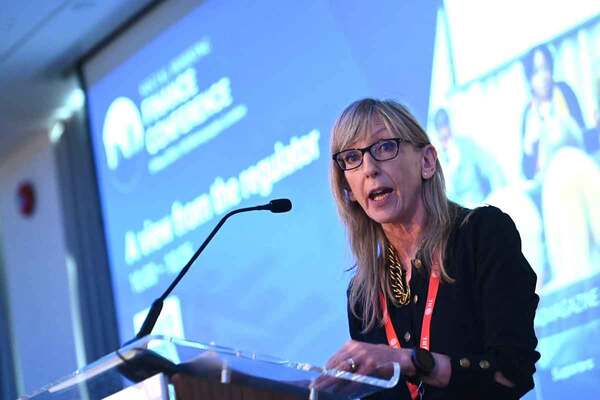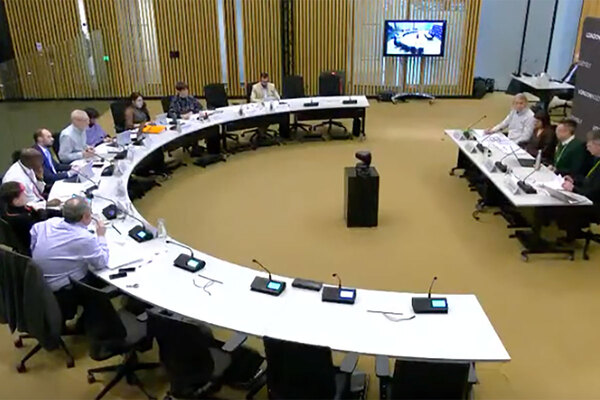Proper funding for high-quality supported housing is needed to fully meet people’s needs
Adequate funding for housing and support is essential to meeting the complex needs of our residents, writes Mark Grant, chief executive of Action Homeless, as part of the Reset Homelessness campaign
![]()
Action Homeless provides a wide range of services funded through various streams, including charitable contributions, the Rough Sleeping Initiative, and other programs funded by the Ministry of Housing, Communities and Local Government.
The majority of the people we house have very complex health, care and behavioural needs, and are often excluded or restricted from accessing other services. This means we are frequently one of the only organisations willing to house or support them.
However, we now deliver only 12 units of local authority-commissioned support – a significant reduction from nearly 100 units a decade ago. These units traditionally fell under the ‘Supporting People’ funding umbrella.
To fully meet people’s needs and break the cycle of homelessness, funding must keep pace with the real costs of providing a safe home along with comprehensive support, including housing management.
To achieve our mission, we prioritise the safety and security of our clients, staff and neighbours. A key component of this effort is our reliance on enhanced housing benefit to fund the necessary level of supervision and housing management. For example, managing a 14-bed rough sleeper project requires two staff members on-site 24/7, which is primarily funded through intensive housing management service charges.
This dependency on housing benefit is not new. Even during the peak of the Supporting People funding regime, homelessness services relied heavily on housing-related service charges paid through housing benefit.
The Supporting People programme itself was developed in response to a court ruling that prohibited housing benefit from being used to pay for support. However, as reductions in support funding have accelerated over the past decade, we, like many other providers, have become increasingly reliant on housing benefit to fund services.
“We believe the root issue lies not with the housing benefit system but with the drastic reduction in support funding”
The increasing level of money now being claimed, along with the spiralling cost of temporary accommodation, means the Department for Work and Pensions (DWP) is the biggest funder of homelessness services.
One of the biggest issues is the rise of for-profit providers delivering non-commissioned ‘supported’ accommodation at excessive profit margins without providing adequate support. This has raised concerns about the system’s sustainability.
Under increasing financial pressure, local authorities are scrutinising claims made by non-registered providers, as they cannot reclaim the full cost from the DWP. As a result, authorities are increasingly favouring exempt status only for registered providers, which often disadvantages experienced homeless charities.
Despite these challenges, we believe the root issue lies not with the housing benefit system but with the drastic reduction in support funding. The needs of the people we house cannot be met solely through enhanced housing support, which forces us to seek additional funding to provide the care and assistance that residents require to maintain their homes.
This situation puts significant strain on our staff, who often feel unable to fully meet the needs of the people they are committed to supporting. Without adequate support funding, we are forced to assess the risks we can safely manage, leading to difficult decisions about whether we can house individuals with additional or complex needs.
Furthermore, housing-related support is only designed to help people manage their accommodation. Many individuals we support also have acute and enduring health and care needs, including severe mental health conditions and substance use challenges.
We are often asked by other statutory services to provide additional support, such as accompanying residents to hospital appointments or participating in safeguarding processes. Without sufficient resources or capacity, this puts significant pressure on our frontline and management teams, requiring a high level of skills and expertise.
Ensuring the well-being of our residents remains our top priority, but achieving this requires sufficient resources to meet their needs comprehensively. While the Supporting People programme sought to separate ‘support’ from ‘housing’, our experience has shown that these two elements are inextricably linked. Adequate funding for both housing and support is essential to meeting the complex needs of our residents.
“The consequence of this fragmented approach is a failure to break cycles of homelessness, acute health crises, prison sentences and longer periods on the streets”
The broader debate about ending rough sleeping often oversimplifies the issue by focusing primarily on housing. However, a holistic and radical rethink of how services are delivered for individuals with complex and enduring needs is urgently needed.
Housing First has recognised that the needs of individuals we support extend beyond housing, but it has also separated housing from support. Our Housing First team frequently struggles to find safe, suitable accommodation that meets the complex needs of individuals due to unco-ordinated commissioning of services.
The consequence of this fragmented approach is a failure to break cycles of homelessness, acute health crises, prison sentences and longer periods on the streets. This not only results in high costs for statutory services, but also tragically leads to premature deaths for many vulnerable individuals.
The recent establishment of the cross-government Inter-Ministerial Group on Homelessness and Rough Sleeping is a positive first step in adopting a broader approach to addressing these issues. However, previous reviews have often focused on connecting existing silos rather than implementing a truly integrated approach.
We advocate for this cross-departmental approach to extend to the local authority level, enabling personalised and tailored support for those in need. This requires a co-ordinated commissioning process with a dedicated, ringfenced budget that recognises the need to fund all aspects of support – including housing management.
Mark Grant, chief executive, Action Homeless
Sign up for our homelessness bulletin
Already have an account? Click here to manage your newsletters













